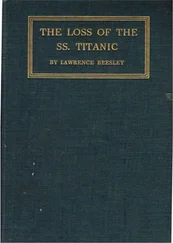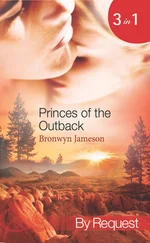John Byron - Byron's Narrative of the Loss of the Wager
Здесь есть возможность читать онлайн «John Byron - Byron's Narrative of the Loss of the Wager» — ознакомительный отрывок электронной книги совершенно бесплатно, а после прочтения отрывка купить полную версию. В некоторых случаях можно слушать аудио, скачать через торрент в формате fb2 и присутствует краткое содержание. Издательство: Иностранный паблик, Жанр: foreign_antique, foreign_prose, на английском языке. Описание произведения, (предисловие) а так же отзывы посетителей доступны на портале библиотеки ЛибКат.
- Название:Byron's Narrative of the Loss of the Wager
- Автор:
- Издательство:Иностранный паблик
- Жанр:
- Год:неизвестен
- ISBN:нет данных
- Рейтинг книги:3 / 5. Голосов: 1
-
Избранное:Добавить в избранное
- Отзывы:
-
Ваша оценка:
- 60
- 1
- 2
- 3
- 4
- 5
Byron's Narrative of the Loss of the Wager: краткое содержание, описание и аннотация
Предлагаем к чтению аннотацию, описание, краткое содержание или предисловие (зависит от того, что написал сам автор книги «Byron's Narrative of the Loss of the Wager»). Если вы не нашли необходимую информацию о книге — напишите в комментариях, мы постараемся отыскать её.
Byron's Narrative of the Loss of the Wager — читать онлайн ознакомительный отрывок
Ниже представлен текст книги, разбитый по страницам. Система сохранения места последней прочитанной страницы, позволяет с удобством читать онлайн бесплатно книгу «Byron's Narrative of the Loss of the Wager», без необходимости каждый раз заново искать на чём Вы остановились. Поставьте закладку, и сможете в любой момент перейти на страницу, на которой закончили чтение.
Интервал:
Закладка:
Whenever the weather permitted, which was now grown something drier, but exceeding cold, we employed ourselves about the wreck, from which we had, at sundry times, recovered several articles of provision and liquor: these were deposited in the store-tent. Ill-humour and discontent, from the difficulties we laboured under in procuring subsistence, and the little prospect there was of any amendment in our condition, was now breaking out apace. In some it shewed itself by a separation of settlement and habitation; in others, by a resolution of leaving the captain entirely, and making a wild journey by themselves, without determining upon any plan whatever. For my own part, seeing it was the fashion, and liking none of their parties, I built a little hut just big enough for myself and a poor Indian dog I found in the woods, who could shift for himself along shore, at low water, by getting limpets. This creature grew so fond of me, and faithful, that he would suffer nobody to come near the hut without biting them. Besides those seceders I mentioned, some laid a scheme of deserting us entirely: these were in number ten; the greatest part of them a most desperate and abandoned crew, who, to strike a notable stroke before they went off, placed half a barrel of gunpowder close to the captain's hut, laid a train to it, and were just preparing to perpetrate their wicked design of blowing up their commander, when they were with difficulty dissuaded from it by one who had some bowels and remorse of conscience left in him. These wretches, after rambling for some time in the woods, and finding it impracticable to get off, for they were then convinced that we were not upon the main, as they had imagined when they first left us, but upon an island within four or five leagues of it, returned and settled about a league from us; however, they were still determined, as soon as they could procure craft fit for their purpose, to get to the main. But before they could effect this, we found means to prevail upon the armourer and one of the carpenter's crew, – two very useful men to us, who had imprudently joined them, – to come over again to their duty. The rest, (one or two excepted) having built a punt, and converted the hull of one of the ship's masts into a canoe, went away up one of the Lagoons, and never were heard of more.
These being a desperate and factious set, did not distress us much by their departure, but rather added to our future security: one in particular, James Mitchell by name, we had all the reason in the world to think had committed no less than two murders since the loss of our ship; one on the person found strangled on board, another on the body of a man whom we discovered among some bushes upon Mount Misery, stabbed in several places, and shockingly mangled. This diminution of our numbers was succeeded by an unfortunate accident much more affecting in its consequences, I mean the death of Mr. Cozens, midshipman; in relating which with the necessary impartiality and exactness, I think myself obliged to be more than ordinarily particular. Having one day, among other things, got a cask of peas out of the wreck, about which I was almost constantly employed, I brought it to shore in the yawl; when having landed it, the captain came down upon the beach, and bid me to go up to some of the tents and order hands to come down and roll it up; but finding none except Mr. Cozens, I delivered him the orders, who immediately came down to the captain, where I left them when I returned to the wreck. Upon my coming on shore again, I found that Mr. Cozens was put under confinement by the captain, for being drunk and giving him abusive language: however, he was soon after released. A day or two after, he had some dispute with the surgeon, and came to blows: all these things incensed the captain greatly against him. I believe this unfortunate man was kept warm with liquor, and set on by some ill-designing persons; for, when sober, I never knew a better natured man, or one more inoffensive. Some little time after, at the hour of serving out provisions, Mr. Cozens was at the store tent; and having, it seems, lately had a quarrel with the purser, and now some words arising between them, the latter told him he was come to mutiny; and without any further ceremony, fired a pistol at his head, which narrowly missed him. The captain, hearing the report of a pistol, and perhaps the purser's words, that Cozens was come to mutiny, ran out of his hut with a cocked pistol in his hand, and, without asking any questions, immediately shot him through the head. I was at this time in my hut, as the weather was extremely bad; but running out upon the alarm of this firing, the first thing I saw was Mr. Cozens on the ground, weltering in his blood: he was sensible, and took me by the hand, as he did several others, shaking his head, as if he meant to take leave of us. If Mr. Cozens' behaviour to his captain was indecent and provoking, the captain's, on the other hand, was rash and hasty: if the first was wanting in that respect and observance which is due from a petty officer to his commander, the latter was still more unadvised in the method he took for the enforcement of his authority; of which, indeed, he was jealous to the last degree, and which he saw daily declining, and ready to be trampled upon. His mistaken apprehension of a mutinous design in Mr. Cozens, the sole motive of this rash action, was so far from answering the end he proposed by it, that the men, who before were much dissatisfied and uneasy, were by this unfortunate step thrown almost into open sedition and revolt. It was evident that the people, who ran out of their tents, alarmed by the report of fire-arms, though they disguised their real sentiments for the present, were extremely affected at this catastrophe of Mr. Cozens (for he was greatly beloved by them): their minds were now exasperated, and it was to be apprehended, that their resentment, which was smothered for the present, would shortly shew itself in some desperate enterprise. The unhappy victim, who lay weltering in his blood on the ground before them, seemed to absorb their whole attention; the eyes of all were fixed upon him; and visible marks of the deepest concern appeared in the countenances of the spectators. The persuasion the captain was under, at the time he shot Mr. Cozens, that his intentions were mutinous, together with a jealousy of the diminution of his authority, occasioned also his behaving with less compassion and tenderness towards him afterwards than was consistent with the unhappy condition of the poor sufferer: for when it was begged as a favour by his mess-mates, that Mr. Cozens might be removed to their tent, though a necessary thing in his dangerous situation, yet it was not permitted; but the poor wretch was suffered to languish on the ground some days, with no other covering than a bit of canvass thrown over some bushes, where he died. But to return to our story: the Captain, addressing himself to the people thus assembled, told them, that it was his resolution to maintain his command over them as usual, which still remained in as much force as ever; and then ordered them all to return to their respective tents, with which order they instantly complied. Now we had saved the long-boat from the wreck, and got it in our possession, there was nothing that seemed so necessary towards the advancing our delivery from this desolate place, as the new modelling this vessel so as to have room for all those who were inclined to go off in her, and to put her in a condition to bear the stormy seas we must of course encounter. We therefore hauled her up, and having placed her upon blocks, sawed her in two, in order to lengthen her about twelve feet by the keel. For this purpose, all those who could be spared from the more immediate task of procuring subsistence, were employed in fitting and shaping timber as the carpenter directed them; I say, in procuring subsistence, because the weather lately having been very tempestuous, and the wreck working much, had disgorged a great part of her contents, which were every where dispersed about the shore.
Читать дальшеИнтервал:
Закладка:
Похожие книги на «Byron's Narrative of the Loss of the Wager»
Представляем Вашему вниманию похожие книги на «Byron's Narrative of the Loss of the Wager» списком для выбора. Мы отобрали схожую по названию и смыслу литературу в надежде предоставить читателям больше вариантов отыскать новые, интересные, ещё непрочитанные произведения.
Обсуждение, отзывы о книге «Byron's Narrative of the Loss of the Wager» и просто собственные мнения читателей. Оставьте ваши комментарии, напишите, что Вы думаете о произведении, его смысле или главных героях. Укажите что конкретно понравилось, а что нет, и почему Вы так считаете.












